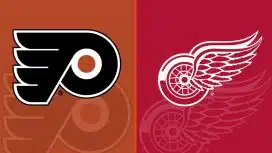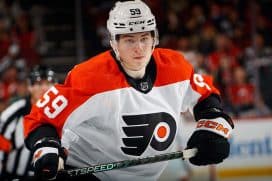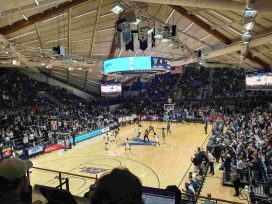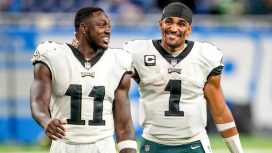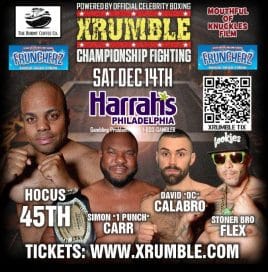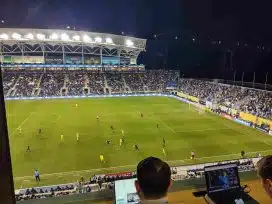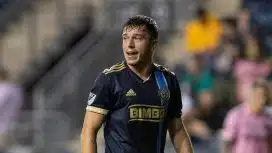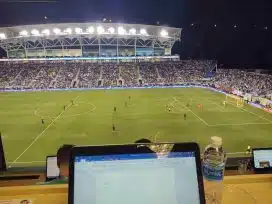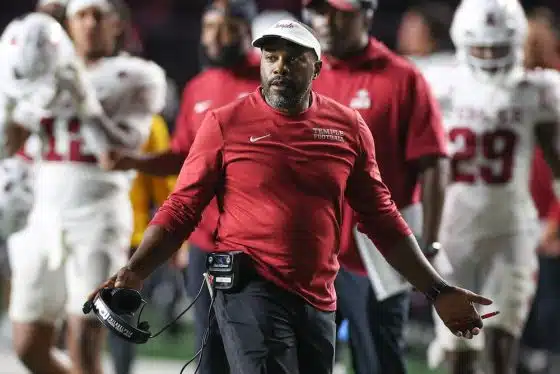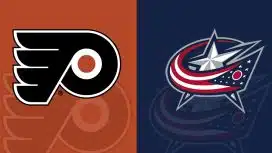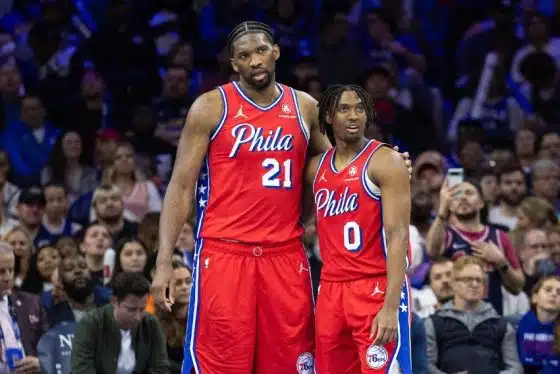Phillies
Top 25 Phillies of All-Time: No. 4, Steve Carlton
By Kevin Durso, Sports Talk Philly editor
It was the offseason leading up to the 1972 season when perhaps the greatest pitcher in Phillies history came to Philadelphia.
During the 1971 season, Rick Wise threw a no-hitter in a game where he hit two home runs, still a lasting memory in Phillies history. But Wise is probably better known for a trade, the deal that brought Steve Carlton to Philadelphia.
Carlton's first season with the Phillies might just be the greatest any pitcher has ever had in baseball history. The Phillies were 59-97, but Carlton was phenomenal with a 27-10 record, 1.97 ERA and 310 strikeouts, leading the league in all three categories and easily claiming the Cy Young Award.
Carlton spent the next 13 full seasons and part of a 14th with the Phillies as their ace, helping lead them to a World Series title in 1980, winning three more Cy Young Awards and making seven All-Star appearances.
He was among the most feared pitchers in baseball with one of the best sliders the game has ever seen and two more breaking pitches that left hitters completely off balance. He regularly led the league in all the major pitching categories, and for a brief time was the all-time leader in strikeouts as Nolan Ryan and Gaylord Perry pursued the mark as well.
Carlton was known as "Lefty" maybe because he was the most dominant left-hander the game had ever seen during the prime of his career. It was the Phillies fortune to have such a dominant pitcher for so long. He was simply the greatest they have ever had and with the game constantly evolving, especially for pitchers, there may never be another quite like Steve Carlton.
Career accomplishments
- 10-time All-Star, seven with the Phillies (1968, 1969, 1971, 1972, 1974, 1977, 1979, 1980, 1981, 1982)
- Two-time World Series champion (1967, 1980)
- Four-time Cy Young Award winner (1972, 1977, 1980, 1982)
- Won the Triple Crown in 1972
- Four-time NL Wins leader, Five-time NL Strikeouts leader
- Gold Glove Award winner (1981)
- Phillies All-time leader in Wins (241) and Strikeouts (3,031)
- Ranks 11th All-time in Wins (329), one of 24 pitchers to reach 300 wins
- Ranks 4th All-time in Strikeouts (4,136), one of 16 pitchers to reach 3,000 strikeouts
- 1994 Hall of Fame inductee, receiving 95.8 percent of vote on first ballot
- No. 32 retired by the Phillies
Most memorable moment
Carlton's most memorable moment isn't really one particular moment. For one of the greatest pitchers the game has ever seen, Carlton never threw a no-hitter — though he did have six one-hitters in his career — and while he was the winning pitcher in the deciding Game 6 of the 1980 World Series, there was nothing flashy about the win, just Lefty's usual consistency and superb pitching.
Carlton's identifier, then, is not really a moment, but a season. The 1972 season was Carlton's first with the Phillies and though the team was several years away from being a championship contender, Carlton was a proven ace.
When Carlton would start, it was dubbed "win day." And in most cases, it was.
Carlton started the season 5-1, including throwing five complete games and two shutouts. He then lost the next five games he started while allowing just 21 runs, 19 of them earned. The fifth straight loss and sixth of the season for Carlton came on May 30. He didn't lose another game until Aug. 21, a string of 19 starts. Carlton picked up the win in 15 of those starts, including eight straights starts to conclude the streak.
The loss on August 21 was an 11-inning complete game for Carlton where he allowed two runs on seven hits.
Carlton finished the season with seven more wins, completing the year with a 27-10 record, 346 1/3 inning pitched, 310 strikeouts and a 1.97 ERA.
Reasoning for ranking
Carlton recorded 14 seasons as a 2+ WAR player, six seasons as a 5+ WAR player and two as an 8+ WAR player, totaling 58 points. He is the franchise's all-time leader in wins, second in win probability average and 22nd all-time in ERA. He is a seven-time All-Star, a four-time Cy Young Award winner, a Gold Glove winner and a 1994 Hall of Fame inductee.
Carlton actually had eight less points than Robin Roberts, who came in at No. 5, but both historical columnist Matt Albertson and Phillies coverage managing editor Tim Kelly believed that Carlton should be slotted higher than Roberts.
Previous entries
- No. 25, Garry Maddox
- No. 24, Roy Thomas
- No. 23, Gavvy Cravath
- No. 22, Chris Short
- No. 21, Cy Williams
- No. 20, Curt Schilling
- N0. 19, Cole Hamels
- No. 18, Ryan Howard
- No. 17, Sam Thompson
- No. 16, Del Ennis
- No. 15, Johnny Callison
- No. 14, Jim Bunning
- No. 13, Dick Allen
- No. 12, Billy Hamilton
- No. 11, Sherry Magee
- No. 10, Bobby Abreu
- No. 9, Chuck Klein
- No. 8, Richie Ashburn
- No. 7, Jimmy Rollins
- No. 6, Chase Utley
- No. 5, Robin Roberts
Formula explained
The player rankings formula combines both traditional and advanced statistics/metrics and assigns a point total to each category. These statistics only reflect the player's Phillies career.
